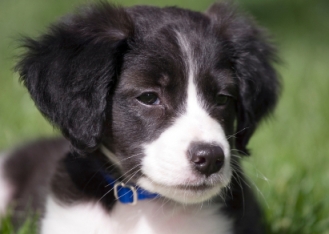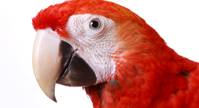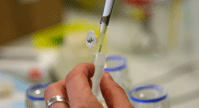Trapped Neutrophil Syndrome (TNS)
Description:
Trapped Neutrophil Syndrome (TNS) is an autosomal recessive mutation affecting Border Collies. TNS was discovered in 1996, in Australia and New Zealand. The mutation causes the dog's infection-fighting white blood cells to be "trapped" and not released from the bone marrow. Without sufficient white blood cells in the bloodstream, the dog's immune system is unable to fight off infections and the dog eventually dies, usually when they are a few months old.

An affected puppy may not show any specific symptoms, other than susceptibility to infection, but may be smaller and less healthy than unaffected puppies. Occasionally, a dog will not show symptoms until they are older, around 7 months old. There is currently no treatment for TNS. However, the infections can be treated with antibiotics or steroids to prolong the life of the dog.
Carriers of the mutation (dogs that carry one copy of the mutation) will not show any symptoms but will pass the mutation on to a percentage of their offspring. It is estimated that about 10% of Border Collies are carriers of the mutation, so testing for TNS before breeding is advisable.
Acceptable Sample Types:
Animal Genetics accepts buccal swab, blood, and dewclaw samples for testing. Complimentary sample collection kits are available and can be ordered at test now.
This Test Is Relevant For the Following Breeds:
- Border Collies
Results:
Animal Genetics offers DNA testing for Trapped Neutrophil Syndrome (TNS). The genetic test verifies the presence of the recessive TNS gene and presents results as one of the following:
| TNS/TNS | Affected | The dog carries two copies of the mutant gene and is homozygous for TNS. This dog will be affected and will always pass a copy of the mutated gene to its offspring. |
| TNS/n | Carrier | Both the normal and mutant copies of the gene detected. Dog is a carrier for the TNS mutation and can pass on a copy of the defective gene to its offspring. |
| n/n | Clear | Dog tested negative for the gene mutation that causes TNS and will not pass on the defective gene to its offspring. |
Submit a Sample for Testing:
To submit a sample for testing please go to test now.
To order a sample collection kit please go to order sample collection kits.
Cost per sample is $45.00. Please see our Canine Fee Schedule for all test rates.










